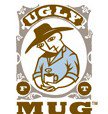Wednesday, November 30, 2005
Monday, November 28, 2005
Music: Top 10 Records of 2005
This year you will find that the ole' Top 10 list is a little Rock band heavy.
 Coldplay
Coldplay1. Coldplay: X & Y
2. Copeland: In Motion
3. Kanye West: Late Registration
4. U2- How To Dismantle An Atomic Bomb
5. The Gorillaz: Demon Days
6. Paramore: All I Know Is Falling
7. Stereophonics: Language, Sex, Violence, and Other?
8. Switchfoot: Nothing Is Sound
9. Fiona Apple: Extraordinary Machine
10. David Crowder Band: A Collision
Honorable Mention: Wilco- Kickin Television (Live in Chicago), Weezer- Make Believe, and Foo Fighters- In Your Honor
*This Top 10 List is the opinion of *Blogstar and is not based on any sales or charts.
Monday, November 21, 2005
Music: U2 in Atlanta
November 19, 2005

We joined 30,000 plus at the Philips Arena in Atlanta, GA on Sat. night. Opening the show was Gavin Rossdale's new band Institute. They brought lots of energy w/ thick power chords, and empty lyric. I was bored after about 3 tunes. Their set's highlights were the 2 Bush hit covers from the 90's.
U2 took and rocked the stage from 9pm-11:30pm. An amazing evening all in all. We have probebly all heard of other Vertigo Tour 05 concert goers say that "it was one of the most powerful worship experiences that they have seen or felt". I won't dismiss those people, but this was not my opinion on this night in Georgia. We were just a part of an awesome rock show from one of the world's best bands. "Where The Streets Have No Name" and "Bullet The Blue Sky" were a couple of my favorite moments.
There were many things that stand out from a 2 1/2 hour show of U2, but the one that I can't escape is this...Bono commands a stage with more grace, respect, and authority than anyone that I have ever seen in person.
One fun note for my friend Mark....Third Day got a shout out from Bono towards the end of the evening.
Last night we got back in town just in time to see Bono's interview on ABC's 60 Minutes. Sweet action. “It's only rock and roll where people are burned out at 40. I want to see what can happen with a band if they keep their integrity, keep their commitment to each other, and can we create extraordinary music,” says Bono, speaking to 60 Minutes while on tour in Milan, Italy this past summer. For more on the interview go HERE.
Monday, November 14, 2005
U2

Bono
This has to be my official U2 Week. Tomorrow, the new U2 DVD Vertigo Tour 05 "Live In Chicago" hits stores, and this coming Saturday I will make the trip to Atlanta to see and meet U2 at the Philips Arena. I'm not really sure how I will continue to contain myself to be any earthly good from Monday till Saturday, but.....
Of course you will be able to hear and see all at this time next week. For the record, this will complete my list of artists / bands to see before I die.
Shout Out to ONE.
Friday, November 11, 2005
Music: Great New Music
If you are like me and are sick of the same frikin' sound (everyone trying to sound like Fall Out Boy) AND you are wanting something new... Imogen Heap (lead singer of Frou Frou) will be some good ear candy for you. One amazing voice, great songs, euro-production, and creative melodies. Have fun.
Local Franklin, TN act Paramore continue to make waves. Coming to Mtv & Mtv2 soon!
Go to www.lunahalo.com to preview what is to come from the next big thing to come out of Nashvegas!
Wednesday, November 09, 2005
Thoughts on Life After Kyle Lake
This is part of a wonderful post from Craig Nash. Thoughts on life without Kyle Lake...
Rest assured and don't lose heart-- I do not blame God. The person who has helped me get through Kyle's death is Kyle. The God Kyle worshiped, the God Kyle modeled and who I adopted because of Kyle, is a God who does not cause all things to happen, but allows us to live in a world where fatal accidents happen and who grieves with us.
All I can say is what David has said...
"Lord I'm tired
So tired from walking
And Lord I'm so alone
And Lord the dark is creeping in
Creeping up to swallow me
I think I'll stop
Rest here awhile
And didn't you see me crying?
And didn't you hear me call your name?
Wasn't it you I gave my heart to?
I wish you'd remember where you set it down."
Rest assured and don't lose heart-- I do not blame God. The person who has helped me get through Kyle's death is Kyle. The God Kyle worshiped, the God Kyle modeled and who I adopted because of Kyle, is a God who does not cause all things to happen, but allows us to live in a world where fatal accidents happen and who grieves with us.
All I can say is what David has said...
"Lord I'm tired
So tired from walking
And Lord I'm so alone
And Lord the dark is creeping in
Creeping up to swallow me
I think I'll stop
Rest here awhile
And didn't you see me crying?
And didn't you hear me call your name?
Wasn't it you I gave my heart to?
I wish you'd remember where you set it down."
Thursday, November 03, 2005
Ugly Mug Coffee

Ugly Mug Coffee is my favorite coffee. It just makes me happy. Fair trade and the best tasting coffee ever, what a combo.
The roots of the Ugly Mug have grown into what is now the Ugly Mug Coffee Company (UMCC). Specializing in roasting our own Fair Trade Organic coffee, UMCC works to connect with people. In fact, the entire focus of the UMCC is to give back to the communities where we do business.
Five years ago, the UMCC began as a local coffee shop geared toward the Memphian college students. Word of mouth advertising gradually grew the coffee studio from a hidden secret to one of the best coffee shops in Memphis*. Our primary goal was to connect with people on a level that gives people a sense of respect and worth.
Coffee is the second highest traded commodity worldwide behind petroleum products, accounting for $60 billion total sales in 2001. We found that growers received only 10% of the overall sales. The wide disparity prevents most coffee farmers from earning a fair price for their coffee.
Go HERE for more. You won't be sorry!
Tuesday, November 01, 2005
ONE Day / Fair Trade (NOV 1, 2005)
What does Fair Trade mean?
Fair Trade means that farmers get a fair price for their produce. This helps family farmers in developing countries to gain direct access to international markets, as well as to develop the business capacity necessary to compete in the global marketplace. By learning how to market their own harvests, Fair Trade farmers are able to bootstrap their own businesses and receive a fair price for their products. This leads to higher family living standards, thriving communities and more sustainable farming practices. Fair Trade empowers farming families to take care of themselves - without developing dependency on foreign aid.
Why is there a problem?
* 75% of poor people in developing countries depend on agriculture for survival.
* Unfair barriers such as subsidies and market access prevent developing countries from competing in the world market.
* Each day, wealthy nations spend $1 billion to protect their own markets through subsidies and dumping
* Subsidies are payments wealthy nations make to producers, giving them an assured income regardless of market factors
* The result of subsidies is dumping. The practice of selling commodities in a foreign market at a lower price than in the domestic market and below the cost of production. Dumped products cut market opportunities for developing county farmers, even in there home markets. In general, they cannon compete with artificially cheap imports. Whereas richer countries can protect their farmers from the depressed world market via government payments that make up the difference, poorer countries cannot, and these farmers must make do with what the market gives them.
* Right now, trade rules are so skewed that cows in Europe receive more every day via government subsidies than half the population of Africa has to live on ($2). (Jubilee)
* Market Access: refers to the extent to which foreign producers can export products to another country without facing barriers. A country can limit access to its market in several ways. The most common example of an access barrier is the tariff, a tax put on an imported product when it enters a country. The intent of a tariff is to protect domestic production by making imports more expensive. The highest tariffs in the international trading system occur in the agricultural sector.
* Tariff escalation- refers to raising the tariff on a given commodity at every processing level.
* For example, the United States charges 7.7 cents per kilogram of almonds in the shell but 24 cents per kilogram for shelled almonds. The more valued added to a product outside the United States, the more it is taxed at the border. Tariff escalation is of concern to developing countries because it discourages development of a processing sector, thereby keeping them in the role of supplying raw products. If they processed the raw cotton, coffee or cocoa, that would create more jobs.
How can Fair Trade lift millions of people out of extreme poverty?
* In 1950, Africa's share of what the world earned from trade was 3%. In 2000 this has dropped to 1.4% (excluding South Africa), despite the fact that Africa has 12% of the world's population. If Africa had maintained its 1950 share of world trade, today it would earn $70 billion more in exports each year, nearly six times what the region receives in foreign aid.
* For every dollar given to poor countries in aid, they lose two dollars to rich countries because of unfair trade barriers against their exports.
* Economists estimate that creating fairer trade policies between the richest and poorest countries of the world could lift 300 million people out of poverty by 2015. (World Bank)
TO LEARN AND KNOW MORE...
www.maketradefair.com
www.oxfam.org
www.transfairusa.org
www.data.org
Fair Trade means that farmers get a fair price for their produce. This helps family farmers in developing countries to gain direct access to international markets, as well as to develop the business capacity necessary to compete in the global marketplace. By learning how to market their own harvests, Fair Trade farmers are able to bootstrap their own businesses and receive a fair price for their products. This leads to higher family living standards, thriving communities and more sustainable farming practices. Fair Trade empowers farming families to take care of themselves - without developing dependency on foreign aid.
Why is there a problem?
* 75% of poor people in developing countries depend on agriculture for survival.
* Unfair barriers such as subsidies and market access prevent developing countries from competing in the world market.
* Each day, wealthy nations spend $1 billion to protect their own markets through subsidies and dumping
* Subsidies are payments wealthy nations make to producers, giving them an assured income regardless of market factors
* The result of subsidies is dumping. The practice of selling commodities in a foreign market at a lower price than in the domestic market and below the cost of production. Dumped products cut market opportunities for developing county farmers, even in there home markets. In general, they cannon compete with artificially cheap imports. Whereas richer countries can protect their farmers from the depressed world market via government payments that make up the difference, poorer countries cannot, and these farmers must make do with what the market gives them.
* Right now, trade rules are so skewed that cows in Europe receive more every day via government subsidies than half the population of Africa has to live on ($2). (Jubilee)
* Market Access: refers to the extent to which foreign producers can export products to another country without facing barriers. A country can limit access to its market in several ways. The most common example of an access barrier is the tariff, a tax put on an imported product when it enters a country. The intent of a tariff is to protect domestic production by making imports more expensive. The highest tariffs in the international trading system occur in the agricultural sector.
* Tariff escalation- refers to raising the tariff on a given commodity at every processing level.
* For example, the United States charges 7.7 cents per kilogram of almonds in the shell but 24 cents per kilogram for shelled almonds. The more valued added to a product outside the United States, the more it is taxed at the border. Tariff escalation is of concern to developing countries because it discourages development of a processing sector, thereby keeping them in the role of supplying raw products. If they processed the raw cotton, coffee or cocoa, that would create more jobs.
How can Fair Trade lift millions of people out of extreme poverty?
* In 1950, Africa's share of what the world earned from trade was 3%. In 2000 this has dropped to 1.4% (excluding South Africa), despite the fact that Africa has 12% of the world's population. If Africa had maintained its 1950 share of world trade, today it would earn $70 billion more in exports each year, nearly six times what the region receives in foreign aid.
* For every dollar given to poor countries in aid, they lose two dollars to rich countries because of unfair trade barriers against their exports.
* Economists estimate that creating fairer trade policies between the richest and poorest countries of the world could lift 300 million people out of poverty by 2015. (World Bank)
TO LEARN AND KNOW MORE...
www.maketradefair.com
www.oxfam.org
www.transfairusa.org
www.data.org



